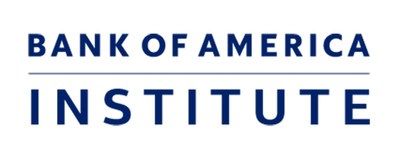BofA Data Finds that 2023 is off to a Strong Start for Consumer Spending, With Credit and Debit Card Spending Per Household up 5.1% Year-over-Year in January
Bank of America Institute reports a 5.1% year-over-year increase in consumer spending per household for January, a notable rise from December's 2.2%. This growth stems from several factors including increased minimum wages in over 20 states, an 8.7% increase in social security payments, and a resilient labor market. Despite challenges like food and rent inflation, households retain elevated savings, countering spending limits. Credit and debit card spending was up 8.6% YoY in December. The Consumer Checkpoint aims to analyze consumer spending trends, offering insights from the bank's comprehensive data.
- 5.1% YoY increase in consumer spending per household in January.
- 8.6% YoY rise in total credit and debit card spend in December.
- Increase in minimum wages and social security payments boosting consumer spending.
- Households face rising costs from food and rent inflation.
- Median household savings have been trending down since April 2022.
Insights
Analyzing...
This Increase Reverses the Trend From the end of 2022 and can be Attributed to Factors such as Income Gains, a Robust Labor Market and Post-holiday Spending
BofA card spending data revealed a meaningful increase in spending during the weeks after Christmas, suggesting consumers could have held back holiday spending to maximize savings from post-holiday promotions and discounts.- An increase in minimum wages in over 20 states, many of which bring the wage rate in line with inflation, put more cash in the pockets of a significant proportion of workers, enabling increased spending.
- An
8.7% increase in social security payments came into effect in January, the largest increase in over 40 years. According to theDepartment for Social Security , this increase impacts approximately 70 million consumers. - The resilience of the labor market – evidenced by January's exceptionally strong non-farm payrolls report – underpins increased consumer spending throughout the month.
Households continue to feel headwinds from rising costs like rent and food inflation, areas which have a greater impact on lower-income consumers. It seems unlikely, however, that a tipping point in spending will be reached in the near term. Consumers continue to have elevated savings, even adjusting for inflation, suggesting they have not yet reached their financial limits. While
Other highlights of the Consumer Checkpoint include:
- Overall total credit and debit card spend, which makes up over
20% of total payments, was up8.6% YoY in December, as total payments growth across all channels (Automated Clearing House, Bill Pay, Credit and Debit Card, Wires, Person-to-Person, Cash and Check) increased7.5% YoY. Bank of America card spending per household was up3.5% month-over-month (seasonally adjusted) on airlines and1.8% on restaurants and bars; international spend rose, too, particularly inAsia , compared with the prior two years, due to further reopening andLunar New Year celebrations- According to the inaugural 401(k) Participant Pulse report, the average contribution rate to 401(k) retirement accounts dropped from
6.6% at the end of 2021 to6.4% at the end of 2022, suggesting consumers may be substituting retirement savings to address short-term financial needs. - The survey also found that the average annual participant contribution increased
1% YoY, so the decline in savings rate did not generally result in lower dollar contributions.
"While spending was slowing towards the end of 2022, consumers have entered the new year with a spring in their step" said
About the Consumer Checkpoint
Consumer Checkpoint is a regular publication from
See the Consumer Checkpoint for methodology and definitions.
About
For more
Reporters may contact:
Phone: 1.646.532.9241
melissa.anchan@bofa.com
![]() View original content to download multimedia:https://www.prnewswire.com/news-releases/bofa-data-finds-that-2023-is-off-to-a-strong-start-for-consumer-spending-with-credit-and-debit-card-spending-per-household-up-5-1-year-over-year-in-january-301743938.html
View original content to download multimedia:https://www.prnewswire.com/news-releases/bofa-data-finds-that-2023-is-off-to-a-strong-start-for-consumer-spending-with-credit-and-debit-card-spending-per-household-up-5-1-year-over-year-in-january-301743938.html
SOURCE








